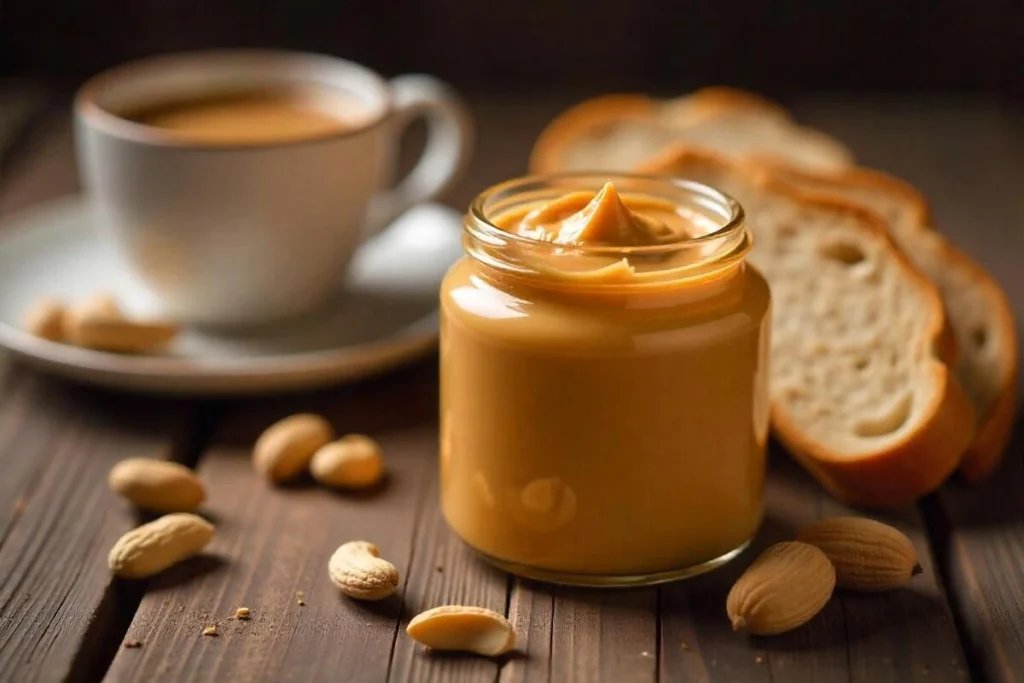
Introduction
What is Organic Peanut Butter?
Organic peanut butter is made from organically grown peanuts, which are cultivated without synthetic pesticides, herbicides, or fertilizers. It is free from genetically modified organisms (GMOs) and typically contains no artificial additives, making it a cleaner, healthier choice for consumers.
Difference Between Organic and Conventional Peanut Butter
- Organic Peanut Butter: Made from organic peanuts, often with minimal ingredients like natural oils and a touch of salt. It’s free from hydrogenated oils, added sugars, and artificial preservatives.
- Conventional Peanut Butter: May include peanuts treated with pesticides, hydrogenated oils for texture, added sugars, and artificial ingredients for flavor and shelf stability.
Why Choose Organic?
- Healthier Choice: Organic peanut butter eliminates exposure to harmful pesticides and synthetic chemicals.
- Environmental Impact: Organic farming practices promote soil health, reduce pollution, and support biodiversity.
- Taste: Many people find that organic peanut butter has a richer, more natural flavor, making it a favorite for clean eating enthusiasts.
Key Ingredients in Organic Peanut Butter
Organic Peanuts
The star ingredient in organic peanut butter is organically grown peanuts. These are cultivated under strict regulations to ensure they are free from synthetic chemicals and GMOs.
Additives to Avoid
High-quality organic peanut butter avoids:
- Hydrogenated Oils: Commonly used in conventional peanut butter to prevent oil separation but linked to trans fats.
- Added Sugars: Organic varieties focus on the natural sweetness of peanuts.
- Artificial Preservatives: Organic peanut butter typically relies on natural methods to maintain freshness.
Optional Organic Enhancements
Some organic peanut butter brands include additional organic ingredients for flavor or texture, such as:
- Salt: For a subtle savory note.
- Natural Oils: Like organic coconut oil for a smoother spread.
- Seeds or Spices: Organic flaxseeds, chia seeds, or cinnamon for added nutrients and flavor.
Health Benefits of Organic Peanut Butter
Free from Harmful Pesticides
Organic peanut butter ensures that you’re not consuming peanuts treated with synthetic pesticides or herbicides, which can leave harmful residues on the product.
Rich in Nutrients
Organic peanut butter retains its natural nutrient profile, offering:
- Protein: Essential for muscle growth and repair.
- Healthy Fats: Monounsaturated fats that support heart health.
- Vitamins and Minerals: Like Vitamin E, magnesium, and potassium for overall wellness.
Better for the Environment
- Sustainable Farming: Organic farming practices reduce environmental pollution and conserve water.
- Biodiversity Support: Organic farms often provide habitats for beneficial insects and wildlife.
- Lower Carbon Footprint: The absence of synthetic fertilizers and pesticides reduces greenhouse gas emissions.
Organic peanut butter is a delicious and eco-friendly option that aligns with healthier lifestyles and environmental sustainability, making it a superior choice for conscious consumers.
How to Choose the Best Organic Peanut Butter
Understanding Organic Certifications
- Look for certifications like USDA Organic, which ensures that the peanuts were grown without synthetic pesticides, GMOs, or artificial additives.
- Check for additional labels like Non-GMO Project Verified or Fair Trade Certified, which indicate ethical and sustainable practices.
Reading Ingredient Labels
- Minimal Ingredients: High-quality organic peanut butter typically contains only peanuts, and sometimes a pinch of salt or natural oil.
- Avoid Additives: Stay away from brands that include hydrogenated oils, added sugars, or artificial preservatives.
- Transparency: Choose brands that clearly list their ingredients and provide information about sourcing and production practices.
Recognizing Quality Brands
Some reputable organic peanut butter brands include:
- MaraNatha: Known for smooth and creamy organic options.
- 365 by Whole Foods Market: Affordable and widely available organic peanut butter.
- Justin’s Organic: Offers flavorful varieties with natural enhancements like honey or cinnamon.
- Once Again Nut Butter: Focuses on ethical sourcing and minimal processing.
Making Organic Peanut Butter at Home
Step-by-Step Guide
- Gather Ingredients:
- 2 cups of organic peanuts (raw or roasted).
- Optional: A pinch of organic salt, organic honey, or natural oils like coconut oil.
- Blend the Peanuts:
- Place peanuts in a high-powered blender or food processor.
- Blend for 3–5 minutes, stopping occasionally to scrape down the sides.
- The peanuts will first crumble, then form a thick paste, and eventually turn into creamy peanut butter as the natural oils release.
- Customize the Flavor:
- Add salt for savoriness, or honey for a touch of sweetness.
- For a crunchy texture, stir in some chopped organic peanuts after blending.
- Store Properly:
- Transfer to an airtight jar and store in the refrigerator for extended freshness.
Necessary Tools and Ingredients
- A powerful blender or food processor.
- High-quality organic peanuts.
- Optional: Measuring spoons and a spatula for precise ingredient handling.
Tips for Achieving the Perfect Texture and Flavor
- Use roasted peanuts for a richer, nuttier flavor.
- Blend for longer if you prefer an ultra-smooth consistency.
- Adjust sweetness or salt levels to suit your personal taste.
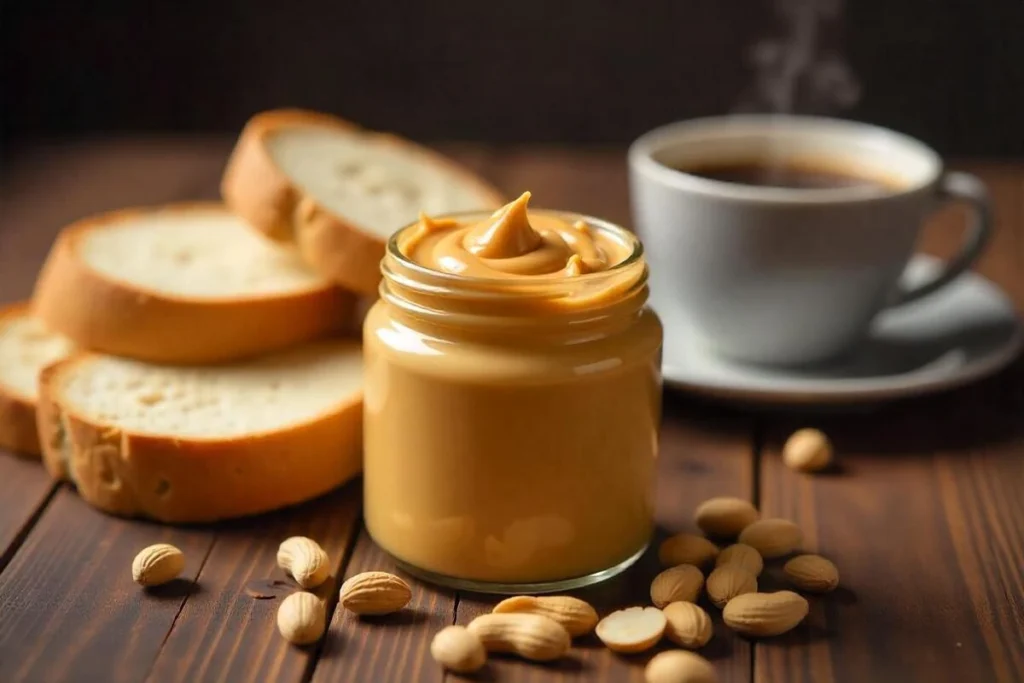
Storage and Shelf Life of Organic Peanut Butter
How to Prevent Spoilage
- Use clean utensils to avoid introducing bacteria.
- Keep the lid tightly sealed to prevent exposure to air and moisture.
- Check for changes in smell or taste as indicators of spoilage.
Refrigeration vs. Pantry Storage
- Refrigeration: Extends the shelf life by slowing oil separation and preventing rancidity. Ideal for organic peanut butter with no preservatives.
- Pantry Storage: Works for short-term use if stored in a cool, dark place. Consume within 2–3 weeks for optimal freshness.
Handling Oil Separation Naturally
- Stir Thoroughly: Upon opening, mix the natural oils back into the butter for consistent texture.
- Store Upside Down: Keeping the jar inverted helps the oils redistribute evenly.
- Refrigerate After Stirring: Once mixed, store in the fridge to maintain its creamy consistency.
By following these guidelines, you can enjoy the rich, natural taste of organic peanut butter while maximizing its quality and shelf life. Whether store-bought or homemade, it’s a healthy addition to your pantry!
Organic Peanut Butter in Cooking and Baking
Popular Recipes
Organic peanut butter can enhance a variety of recipes:
- Smoothies: Blend with bananas, almond milk, and spinach for a nutrient-packed drink.
- Peanut Butter Cookies: Create soft, chewy cookies with just organic peanut butter, sugar, and eggs (or a vegan alternative).
- Satay Sauce: Combine peanut butter with coconut milk, soy sauce, and lime for a creamy, flavorful sauce.
Substituting in Traditional Recipes
- Replace conventional peanut butter with organic in recipes for cleaner ingredients and a richer taste.
- Organic peanut butter’s natural oils may make some batters looser; add a touch of flour or starch to balance the consistency if needed.
- Works seamlessly in baked goods, dressings, and dips.
Unique Culinary Uses
- Peanut Butter Oatmeal: Stir into hot oatmeal for added protein and creaminess.
- Stuffed Dates: Fill medjool dates with peanut butter and top with crushed nuts for a healthy dessert.
- Energy Balls: Combine with oats, honey, and chia seeds for no-bake snacks.
Organic Peanut Butter for Special Diets
Vegan and Vegetarian Uses
- Peanut butter is a staple in plant-based diets, offering a protein boost in:
- Vegan smoothies and shakes.
- Dairy-free baked goods.
- Nut butter dressings for salads and bowls.
Keto and Low-Carb Applications
- Peanut butter, free from added sugars, fits well in keto and low-carb diets. Use it for:
- Fat Bombs: Blend with coconut oil and cocoa powder for a quick, energy-dense treat.
- Low-Carb Desserts: Add to almond flour cookies or pancakes for extra flavor and nutrients.
Gluten-Free Benefits
- Naturally gluten-free, peanut butter can be used in:
- Flourless peanut butter cookies.
- Gluten-free bread spreads and fillings.
- As a substitute for traditional spreads in gluten-free wraps or crackers.
Common Myths About Organic Peanut Butter
Is It Really Healthier?
Yes, Peanut butter is typically healthier than conventional varieties because:
- It is free from synthetic pesticides, GMOs, and hydrogenated oils.
- Contains fewer or no added sugars and artificial preservatives, offering a cleaner nutrient profile.
Misconceptions About Taste
- Some believe peanut butter lacks the creamy texture or sweetness of conventional options. However:
- Organic peanut butter offers a more authentic, nutty flavor.
- Stirring the natural oils ensures a smooth consistency.
- Sweetness can easily be adjusted with a drizzle of honey or maple syrup.
Addressing Cost Concerns
- While Peanut butter can be pricier, the cost reflects:
- Environmentally sustainable farming practices.
- Higher quality, pesticide-free ingredients.
- Buying in bulk or making it at home can reduce costs and ensure freshness.
Peanut butter is not only versatile and nutritious but also caters to a wide range of dietary needs, making it a superior choice for health-conscious cooking, baking, and snacking.
Environmental Benefits of Organic Peanut Butter
Sustainable Farming Practices
Organic peanut farming follows environmentally friendly methods that protect natural resources:
- Crop Rotation: Helps maintain soil health and fertility by reducing the need for synthetic fertilizers.
- Water Conservation: Efficient irrigation systems are often used in organic farming to reduce water waste.
- Natural Pest Control: Organic farmers use beneficial insects and crop diversity instead of synthetic pesticides.
Reducing Chemical Usage
- Organic peanuts are grown without synthetic pesticides, herbicides, or fertilizers, which minimizes pollution in soil, water, and air.
- The absence of harmful chemicals reduces the risk of contamination to surrounding ecosystems and wildlife.
Supporting Biodiversity
- Organic farming practices foster biodiversity by preserving habitats for pollinators, birds, and beneficial insects.
- By avoiding monoculture, organic farms support a variety of plant and animal life, creating a balanced and resilient ecosystem.
Comparing Organic Peanut Butter with Conventional Options
Ingredient Differences
- Organic Peanut Butter: Made with organically grown peanuts and typically free from hydrogenated oils, added sugars, and artificial preservatives.
- Conventional Peanut Butter: Often contains added sugars, stabilizers, and hydrogenated oils to enhance flavor and shelf life.
Health Impacts
- Organic Peanut Butter: Provides a cleaner nutrient profile with fewer chemicals and artificial additives, making it a healthier choice.
- Conventional Peanut Butter: May contain trans fats and excess sugar, which can contribute to health issues like heart disease and weight gain.
Flavor and Texture Contrasts
- Organic Peanut Butter: Offers a rich, authentic peanut flavor and a slightly grittier texture due to minimal processing.
- Conventional Peanut Butter: Often sweeter and creamier, but the flavor may be less natural due to added ingredients.
Popular Brands of Organic Peanut Butter
Best-Rated Organic Peanut Butter Brands
- MaraNatha Organic: Known for its creamy texture and minimal ingredients.
- 365 by Whole Foods Market: Affordable and widely available peanut butter.
- Once Again Nut Butter: Offers a range of organic varieties with a commitment to sustainable practices.
- Justin’s Organic: Features unique flavors like honey and cinnamon in addition to classic peanut butter.
Artisanal vs. Mass-Produced Options
- Artisanal Brands: Focus on small-batch production and unique flavors, often using local, organic peanuts. Examples include Big Spoon Roasters and Wild Friends.
- Mass-Produced Brands: Widely available in grocery stores and online, offering consistent quality and affordability.
Online and Local Purchase Suggestions
- Online: Retailers like Amazon, Thrive Market, and specialty food websites often carry a wide selection of peanut butter brands.
- Local: Visit health food stores, farmers’ markets, or co-ops for local or regional options that support nearby growers.
Peanut butter not only benefits your health but also supports environmentally responsible farming and production practices, making it a superior choice for both individuals and the planet.
Frequently Asked Questions (FAQs)
What Makes Peanut Butter Organic?
Peanut butter is considered organic when it is made from organically grown peanuts and free from synthetic pesticides, herbicides, GMOs, and artificial additives. Organic certifications, like USDA Organic, ensure these standards are met.
Does Organic Peanut Butter Taste Different?
Yes, peanut butter often has a richer, more natural peanut flavor due to minimal processing and the absence of added sugars or artificial ingredients. The texture may also be slightly grittier compared to the ultra-smooth conventional varieties.
Can It Be Stored Long-Term?
Peanut butter can be stored long-term, but because it lacks preservatives, it may not last as long as conventional peanut butter:
- Refrigeration: Extends freshness and prevents oil separation.
- Shelf Life: Typically lasts 6–12 months unopened and 2–3 months after opening if stored in the pantry.
Is Organic Peanut Butter Really Better?
Yes, organic peanut butter is generally better because:
- It’s free from harmful pesticides and GMOs.
- It has a cleaner ingredient list, often limited to just peanuts and salt.
- Organic farming practices are better for the environment.
What Is the Healthiest Peanut Butter to Eat?
The healthiest peanut butter:
- Contains only peanuts (and optional salt).
- Is free from hydrogenated oils, added sugars, and preservatives.
- Examples: Once Again Nut Butter, Crazy Richard’s, and MaraNatha Organic.
Is It OK to Eat Organic Peanut Butter Every Day?
Yes, it’s safe to eat peanut butter daily in moderation. It’s a good source of protein, healthy fats, and essential nutrients like Vitamin E and magnesium. However, portion control is important due to its high calorie density.
Which Peanut Butter Has No Aflatoxins?
Aflatoxins are naturally occurring toxins produced by certain molds that can contaminate peanuts. While no peanut butter can be guaranteed to be entirely aflatoxin-free, peanut butter brands often test their products rigorously to minimize contamination. Look for brands like Once Again and MaraNatha, which emphasize high-quality sourcing and testing.
Organic peanut butter offers a healthier, environmentally friendly alternative to conventional spreads, featuring a clean ingredient list free from pesticides, GMOs, and artificial additives. Its rich, natural flavor makes it a favorite for clean-eating enthusiasts and a versatile ingredient in both sweet and savory recipes. If you’re interested in peanut butter-based options, check out recipes for Natural Peanut Butter and Peanut Butter Crackers on Org Recipes for more inspiration. Enjoy peanut butter as part of a healthy, sustainable lifestyle!
Fun Facts About Organic Peanut Butter
Origins of Organic Peanut Farming
- Organic peanut farming began gaining traction in the late 20th century as consumers demanded pesticide-free and environmentally friendly foods.
- Peanuts, as legumes, naturally enrich the soil with nitrogen, making them well-suited for organic farming practices.
- The first peanut butter brands emerged in health food stores, catering to early adopters of the clean-eating movement.
Growth in Market Demand
- Over the last decade, the demand for organic peanut butter has grown significantly, driven by increased health awareness and environmental concerns.
- The global peanut butter market is expected to continue growing as more consumers opt for healthier alternatives to traditional spreads.
Unique Applications Worldwide
- In Southeast Asia, peanut butter is used to make creamy satay sauces for meat and vegetable dishes.
- In Western countries, it’s a key ingredient in healthy snack bars and protein-rich smoothies.
- In parts of Africa, peanut (including organic varieties) is incorporated into stews and soups for added richness and flavor.
Challenges and Solutions in Using Peanut Butter
Adjusting to Oil Separation
- Challenge: Organic peanut often separates, with the oil rising to the top.
- Solution: Stir thoroughly upon opening, and store the jar upside down or refrigerate to minimize separation.
Achieving Desired Consistency
- Challenge: Organic peanut may be thicker or thinner than conventional varieties.
- Solution:
- If too thick, add a small amount of natural oil (e.g., coconut or peanut oil) and mix well.
- If too thin, refrigerate for 15–20 minutes to firm it up.
Finding Affordable Options
- Challenge: Organic peanut can be more expensive than conventional options.
- Solution:
- Buy in bulk or look for store brands like 365 by Whole Foods Market.
- Make your own organic peanut butter at home using organic peanuts for cost savings.
Advanced Recipes Using Organic Peanut Butter
Homemade Granola Bars
- Combine peanut butter with rolled oats, honey, and dried fruits. Press into a pan, chill, and slice into bars for a nutritious snack.
Peanut Butter Smoothies
- Blend peanut butter with almond milk, a frozen banana, and a handful of spinach for a creamy, protein-packed green smoothie.
- Add cocoa powder for a rich, chocolatey twist.
Gourmet Desserts and Sauces
- Peanut Butter Cheesecake: Use peanut butter in the filling for a creamy, nutty dessert. Top with a drizzle of dark chocolate for extra indulgence.
- Peanut Butter Satay Sauce: Combine peanut with soy sauce, ginger, garlic, and lime juice for a versatile sauce perfect for grilled meats or noodles.
Organic peanut butter’s rich flavor and natural qualities make it an excellent ingredient for a wide range of recipes, while its health and environmental benefits enhance its appeal for conscious consumers.
Conclusion
Why Organic Peanut Butter is Worth the Switch
Peanut butter offers a wealth of benefits for both your health and the environment. Made without harmful pesticides, GMOs, or artificial additives, it provides a cleaner, more natural option for you and your family. Its rich, authentic flavor and nutrient-dense profile make it a versatile staple for cooking, baking, or enjoying as a simple snack. Additionally, organic farming practices support sustainability, biodiversity, and reduced environmental impact, making peanut a choice that benefits the planet.
Encouragement to Try or Make Your Own
Switching to peanut butter is a rewarding step toward healthier eating. With a growing range of affordable and high-quality brands, there’s never been a better time to explore the options. For those who enjoy DIY projects, making your own peanut butter at home allows you to control ingredients and customize flavors to suit your preferences.
Final Thoughts
Peanut butter is more than just a spread—it’s a symbol of mindful choices that prioritize health, taste, and sustainability. Whether you buy it pre-made or make your own, incorporating into your diet is a delicious way to nourish your body and contribute to a greener future. Make the switch today and savor the difference!
Viral Tuna Salad: 5 Bold Reasons Matthew McConaughey’s Recipe Wins
Healthy Homemade Chicken Mortadella
Chicken Mortadella changed my deli game forever. I used to stare at processed meat…
The BEST Taco Pasta
When I’m short on time and need to get a satisfying dinner on…
Classic German Kartoffelpuffer Recipe (Authentic, Crispy & Easy to Make)
Easy Butter Pecan Cookies Recipe
There’s something undeniably comforting about the scent of buttery, nutty cookies wafting from…
Perfect Strawberry Cheesecake Recipe
If there’s one dessert that’s guaranteed to silence a lively room, it’s this…


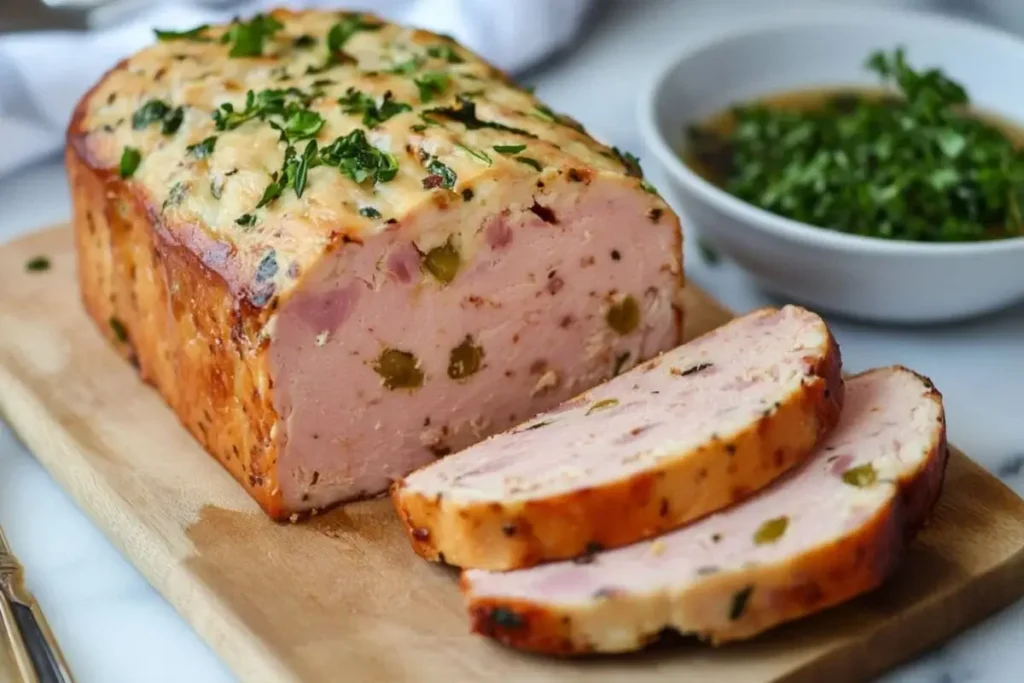

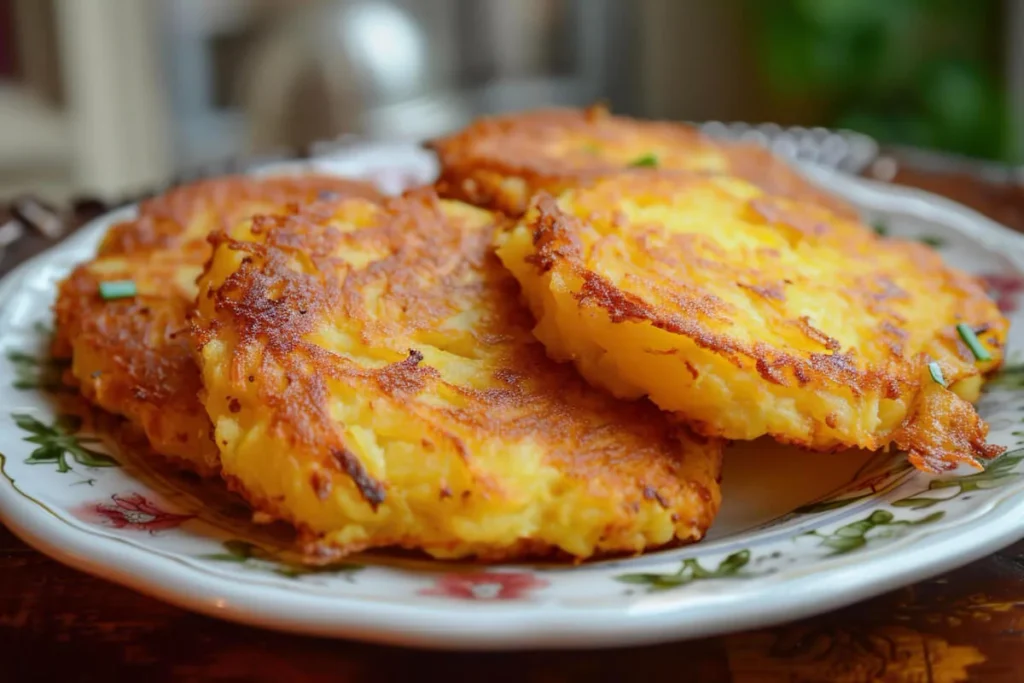

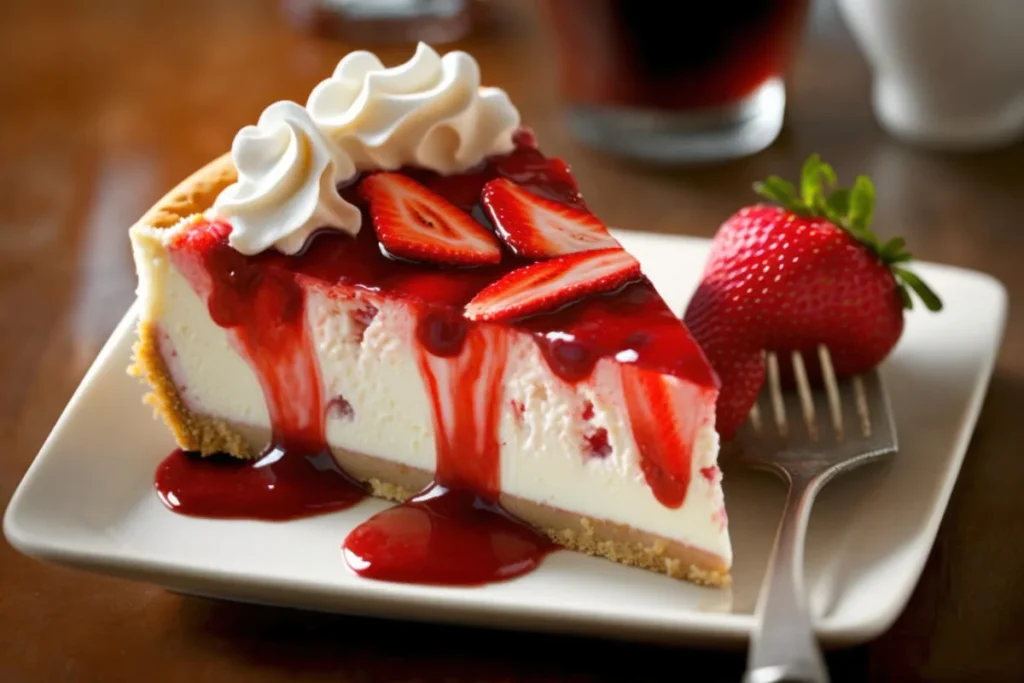
1 thought on “Organic Peanut Butter”